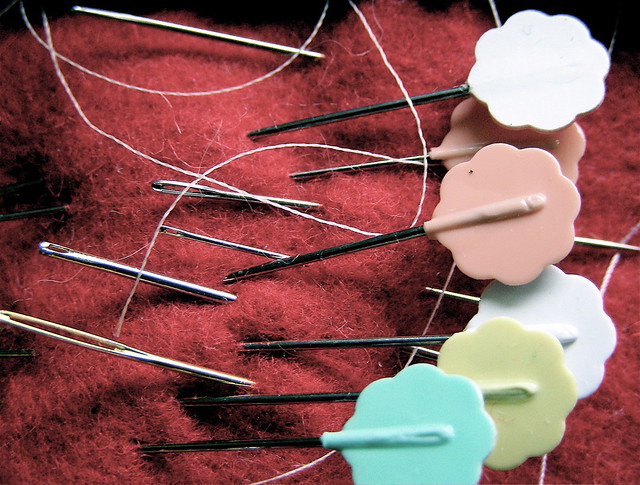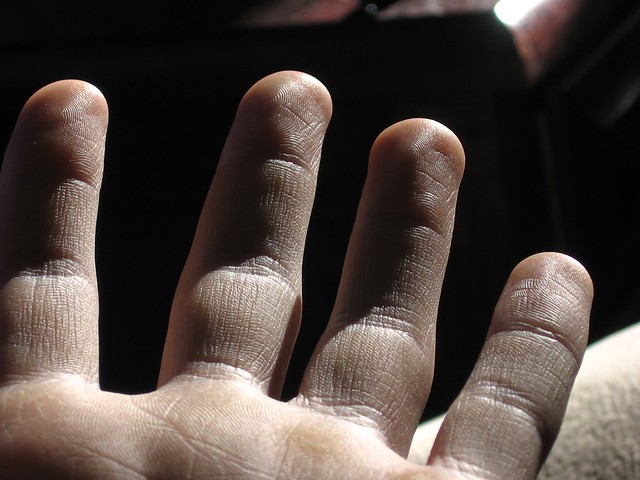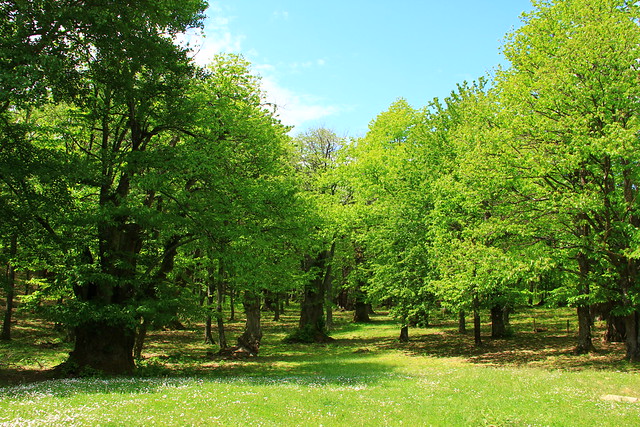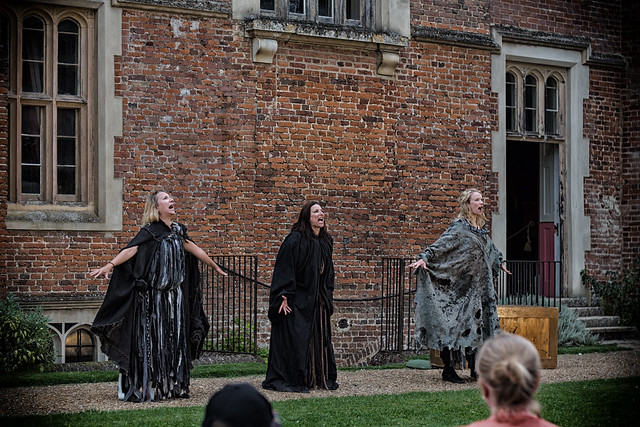Podcast: Play in new window | Download
In this Adventure in Etymology we’re noodling around with the word noodle.
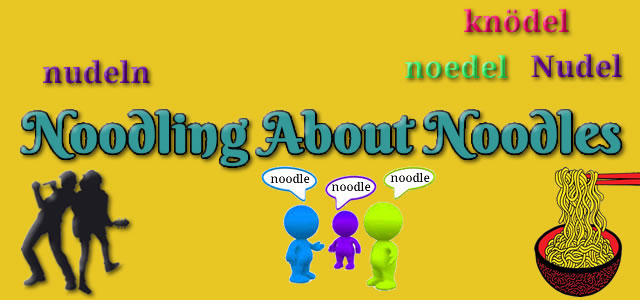
As a noun, a noodle can refer to:
- A string or flat strip of pasta or other dough, usually cooked (at least initially) by boiling, and served in soup or in a dry form mixed with a sauce and other ingredients.
- An object which is long and thin like a noodle.
It comes from Dutch noedel (noodle), or from German Nudel (a piece of pasta, noodle). The origin of these words is uncertain [source].
Apparently in the USA noodle can refer to Asian noodles and Italian pasta, whereas in the UK, noodle only refers to Asian noodles.
As a verb, to noodle can mean:
- To play a musical instrument or to sing in an improvisatory or light-hearted manner
- To ponder or think, especially in an unproductive or unsystematic manner
- To attempt in an informal or uncertain manner; to fiddle.
In Shetland dialect, to noddle means to hum or sing (a tune) at a low pitch or volume. This may be a blend of the Shetland word nune (to sing softly, croon, hum) and doodle (to play the bagpipes) in Scottish English.
The English verb to noodle may come from the Shetland word, or from German nudeln (to make music or sing listlessly, at a low pitch or volume, or in an improvisatory manner). It was possibly influenced by doodle (to draw or scribble aimlessly).
In informal British English, to noodle can also mean to engage in frivolous behaviour, or to fool around or waste time, and it used to mean a person with poor judgement, a fool, or to fool or trick someone.
Other meanings of noodle are available.
Incidentally, I like to noodle on my various musical instruments, and with my voice, and wrote a little ditty about this the other day, which goes something like this:
I’m just noodling away quite happily
and nothing can get in my way
I could noodle all day down by the bay
and noodle all through the night
Will you noodle with me down by the sea?
Will you noodle along the shore?
Will you noodle and moodle and all that caboodle?
We’ll have a lot of fun you’ll see
We can noodle and doodle and eat some strudel
with oodles of custard and cream
And then noodle some more it won’t be a bore
Just noodling down on the shore
Just noodling down on the shore
Just noodling down on the shore
Just noodling down on the shore
Just noodling down on the shore
To moodle means to dawdle aimlessly, to idle time away [source], oodles means an unspecified large amount, number, or quantity; lots, tons [source], and cabdoodle means any large collection of things or people [source]
You can also listen to this podcast on: Apple Podcasts, Amazon Music, TuneIn, Podchaser, Podbay or Podtail and other pod places.
If you would like to support this podcast, you can make a donation via PayPal or Patreon, or contribute to Omniglot in other ways.
Radio Omniglot podcasts are brought to you in association with Blubrry Podcast Hosting, a great place to host your podcasts. Get your first month free with the promo code omniglot.
I also write about words, etymology and other language-related topics on the Omniglot Blog, and I explore etymological connections between Celtic languages on the Celtiadur blog.



